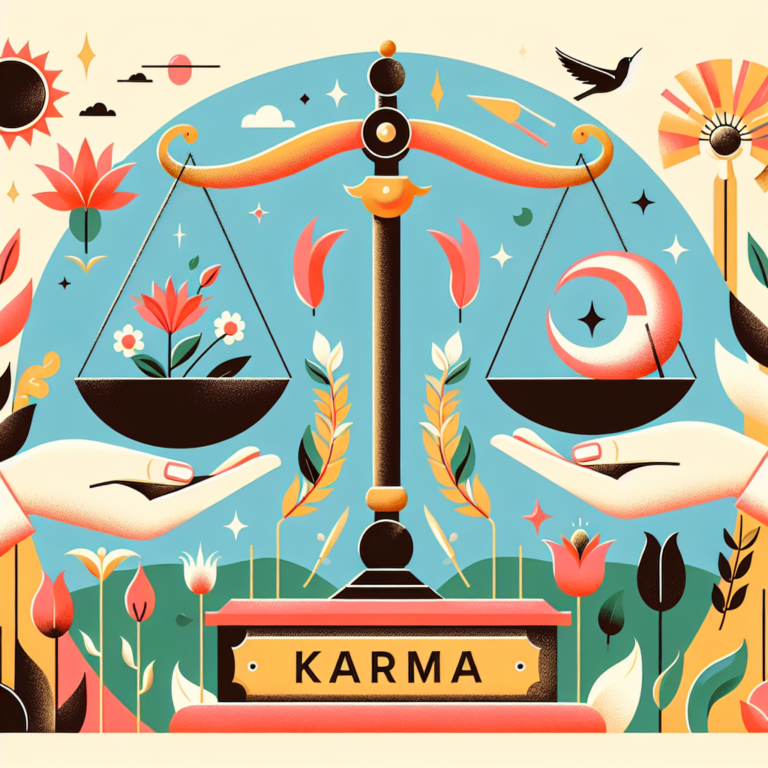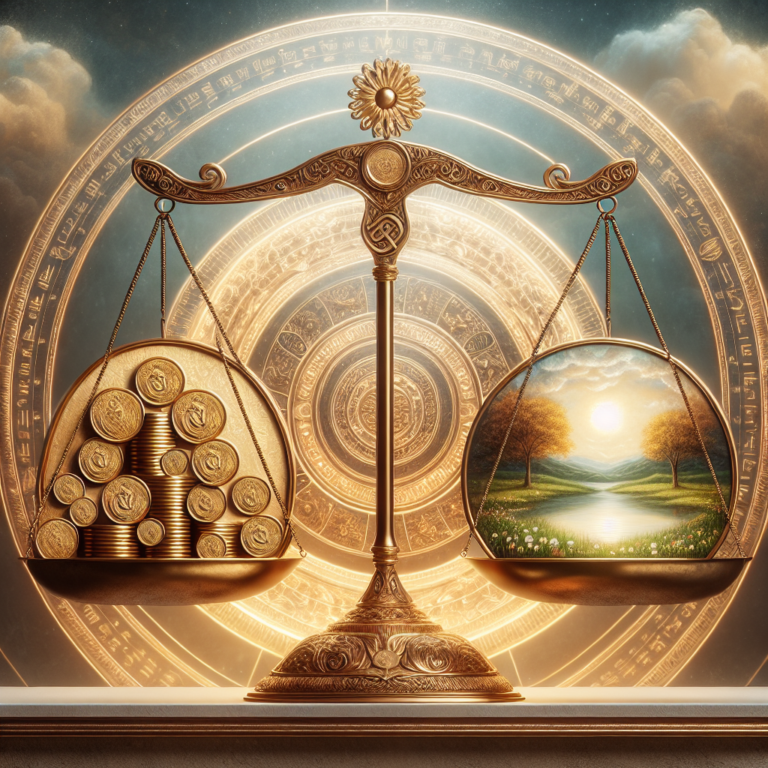The Dance of Karma: Understanding Its Role in Forgiveness
The concept of karma is often oversimplified in Western culture as a sort of cosmic ledger of good and bad deeds. However, the true understanding of karma is much more nuanced and profound. Karma is not merely an accounting of actions but an intricate, interconnected dance that shapes our experiences, relationships, and ultimately, our capabilities to forgive. In this article, we will delve into the essence of karma, explore its intricate ties to forgiveness, and how understanding karma can lead to deeper emotional healing.
What is Karma?
Karma originates from ancient Indian philosophies and is widely found in Hinduism, Buddhism, Jainism, and Sikhism. Traditionally, karma (from the Sanskrit word "karman," meaning "action") refers to the law of moral causation. It embodies the principle that every action has consequences, and that includes our thoughts, intentions, and emotions.
These actions can manifest in the present or carry over into future lives in the form of karmic debts or credits. However, the more profound aspect of karma is its capacity to influence our current life experiences. Understanding karma in this way invites individuals to ponder how their actions shape their emotional landscapes, which ties directly into the concept of forgiveness.
The Relationship between Karma and Forgiveness
Forgiveness is often described as a conscious decision to release feelings of resentment or vengeance toward an offender. This decision is deeply personal and can lead to a profound sense of relief and liberation. But how does karma play into this process?
Karma and Responsibility: Understanding karma fosters a sense of responsibility for our actions. When we grasp that each action has consequences, we become more aware of how our behavior affects ourselves and others. This awareness often encourages a willingness to apologize and seek forgiveness when we recognize that our actions have caused harm. Conversely, being on the receiving end of hurtful actions can prompt one to explore forgiveness as a means of releasing the painful bondage wrought by others’ karma.
Seeing the Bigger Picture: Karma teaches us that life is not a mere occurrence of isolated events. Instead, it presents a tapestry of interconnected lives and experiences. When that perspective is adopted, the act of forgiveness can shift focus from the individual act of wrongdoing to an understanding of the larger patterns at play. By observing that hurt originates often from pain within the offender, we can cultivate empathy and compassion, essential ingredients for true forgiveness.
Breaking the Cycle: A common saying states that "holding onto anger is like drinking poison and expecting the other person to die." Forgiveness is a powerful tool for breaking the cycle of karma. When we forgive, we release not only ourselves but also the other person from the karmic patterns of resentment and grievance. Forgiveness can liberate us from the chains of victimhood, empowering us to reshape our own karmic future.
- Healing and Transformation: Forgiveness is also a pathway for personal transformation. When we choose to forgive, we engage in a process of emotional healing. Karma does not penalize us for feeling anger or sadness; instead, it allows for transformation through these emotional experiences. Acknowledging feelings, understanding patterns, and being open to forgiveness leads to personal growth, creating more positive karmic imprints for the future.
Practical Steps to Cultivate Forgiveness through the Lens of Karma
Self-Reflection: Begin by examining your feelings around a specific wrongdoing. What emotions are surfacing? Reflect on your own experiences and recognize that all humans are fallible.
Empathize with the Offender: Consider the circumstances that may have influenced their actions. Understanding another person’s pain can foster compassion, paving the way for forgiveness.
Accept Duality: Understand that life is filled with dualities—joy and sorrow, pleasure and pain, and even love and anger. Accepting this duality allows you to recognize that even hurtful actions can coexist with love and understanding.
Practice Letting Go: Find manifestations of letting go. This can be through therapeutic conversations, journaling, or mindfulness practices. Each act of releasing anger or resentment is a form of self-liberation.
Affirmations of Forgiveness: Use daily affirmations to reinforce the intention of forgiveness. Statements like “I choose to let go of resentment” can make the commitment to forgiveness more tangible.
- Seek Help When Necessary: Sometimes, the path to forgiveness is difficult, and external support, such as counseling, may be beneficial. Professionals can guide you in unearthing deep-rooted feelings and assist you in re-examining karmic patterns.
Embracing the Dance of Karma
Life is a dance—an intricate interplay of actions, reactions, and choices. Recognizing the role of karma in this dance can provide clarity and a deeper appreciation for the complexity of human emotions and interactions. Each step we take affects not only ourselves but also the broader tapestry of existence.
By understanding karma, we can cultivate the wisdom required to navigate through relationships, personal grievances, and ultimately, our paths toward forgiveness. It allows us to reshape our identities, redefine our experiences, and foster genuine connections free from the burdens of unhealed pasts.
FAQs
What is karma?
Karma is the ancient principle that every action has consequences, often reflecting the interconnectedness of all living beings. It encompasses not only actions but also thoughts and intentions, influencing present and future experiences.
How does karma influence forgiveness?
Karma promotes awareness of how our actions affect ourselves and others, facilitating personal responsibility. Understanding this interconnectedness can lead to greater empathy and the willingness to forgive, ultimately breaking negative cycles of resentment.
Can forgiveness change my karma?
Yes. Forgiveness can shift your karmic patterns by releasing emotional burdens and fostering a more positive emotional state. Each act of forgiveness contributes to a healthier emotional landscape, aiding growth and transformation.
Is it always easy to forgive?
No, forgiveness can be a complex process, especially when deep emotional wounds are involved. It often requires self-reflection, empathy, and sometimes external support. The journey of forgiveness is personal and can take time.
How can I practice forgiveness?
Practicing forgiveness involves self-reflection, empathy, acceptance of dualities, letting go of resentment, using affirmations, and seeking help when needed. Each step contributes to your understanding and ability to forgive.
It seems like your message got cut off. Could you please provide more details or clarify what you need help with?, #Dance #Karma #Understanding #Role #Forgiveness, #Dance #Karma #Understanding #Role #Forgiveness, 1735606316, the-dance-of-karma-understanding-its-role-in-forgiveness





